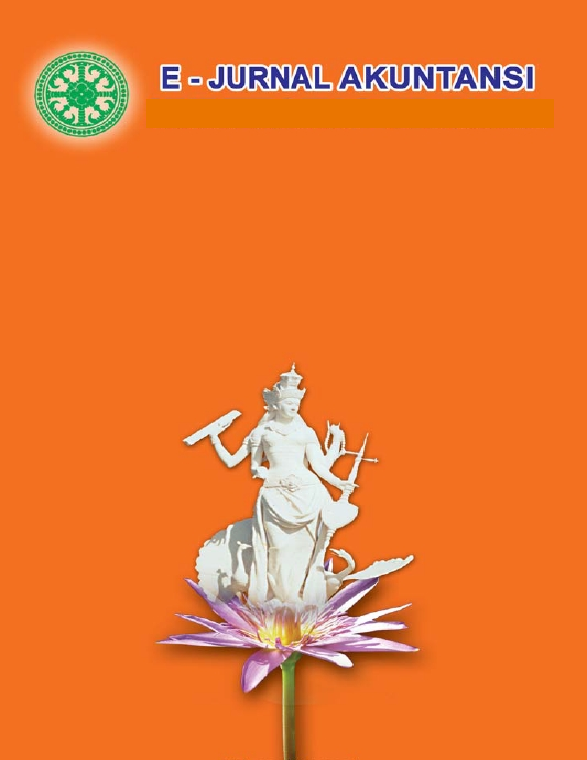Implementasi e-FAKTUR 2.2 dan PMK 62/PMK03/2015 atas Pupuk Bersubsidi Perspektif Distributor
Abstract
E-fakur 2.2 is a manifestation of Undang-undang No. 42 of 2009 concerning Value Added Tax (VAT) which does not accommodate VAT subsidies for commodity Fertilizer packages which have an impact on SAS VAT for distributors. This study aims to see how the implementation of subsidized fertilizer commodity e-invoices with the government-borne method (PPN DTP). General problems regarding the legal basis which technically only explain down to the producer level. The results of observations in a case study by processing data from 2016 onwards show problems in their implementation, both from administration, validation sistems and developing information on supervision and cross-information, especially on the management of SAS PPN through e-faktur2.2 from the distrbutor perspective.
Keywords : E-Faktur; VAT Subsidized; Subsidized Fertilzer.
Downloads
References
Copenhagen Economics. (2013). Vat in the Public Sector and Exemptions in the Public Interest. 1–268.
Das, A. (n.d.). With non − competitive firms , a turnover tax can dominate the. 8(9).
Dečman, M., & Klun, M. (2015). The Impact of Information Systems on Taxation: A Case of Users’ Experience With an e-Recovery Information System. The Electronic Journal of E-Government, 13(2), 110–121.
Gisbu, O. W., Kardinal, & Kathryn. (2015). Pengaruh Modernisasi e- Nofa Terhadap Kepatuhan PKP dalam Penerapan Penomoran Faktur. 1–12. http://eprints.mdp.ac.id/1578/1/Jurnal.pdf
Han, E. S., & goleman, daniel; boyatzis, Richard; Mckee, A. (2019). No Title. Journal of Chemical Information and Modeling, 53(9), 1689–1699.
Komal, & Sirifort. (2013). An Analysis of the Impact of Value Added Tax ( VAT ) in Delhi. 3(3), 277–286. http://www.ripublication.com/gjmbs.htm%0AAn
Keputusan Menteri Keuangan KMK No 544 TAhun 2000 tentang Kepatuhan Perpajakan
Muir, R. S. (1993). The Goods and Services Tax : Reflections on the New Zealand Experience , Six Years On The Goods and Services Tax : Reflections on the New Zealand. 3(2).
Musri, B. (2019). Aplikasi E-faktur Dalam Aturan Pemusatan PPN, pada PT X. JPAK : Jurnal Pendidikan Akuntansi Dan Keuangan, 7(2), 97–110. https://doi.org/10.17509/jpak.v7i2.17080
Nurma Ari Widyaningrum. (2012). Implementasi kebijakan..., Nurma Ari Widyaningrum, FISIP UI, 2012.
Peraturan Menteri Keuangan PMK No 228/200 jo PMK 237/2011
Peraturan Menteri Keuangan NPMK No62/PMK03/2015
Sarjana, P., Akuntansi, I., & Akuntansi, D. (n.d.). Pengaruh Tax Avoidance Terhadap Cost Of Debt Indah Masri Dwi Martani.
Sudjono, S. (2016). Sistem Distribusi Berbasis Relationship: Kajian Penyempurnaan Penyaluran Pupuk Bersubsidi Kepada Petani. Analisis Kebijakan Pertanian, 9(4), 313. https://doi.org/10.21082/akp.v9n4.2011.313-330
Sudrajat, A., Ompusunggu, A. P., & Classification, J. E. L. (2015). Pemanfaatan teknologi Informasi , Sosialisasi Pajak , Pengetahuan Perpajakan , dan. 2(2).
Timmermans, B., & Achten, W. M. J. (2018). From value-added tax to a damage and value-added tax partially based on life cycle assessment: principles and feasibility. International Journal of Life Cycle Assessment, 23(11), 2217–2247. https://doi.org/10.1007/s11367-018-1439-7
Tripathi, R., Sinha, A., & Agarwal, S. (2011). The effect of value added taxes on the Indian society. 3(June), 32–39.
Undang -Undang No 42 Tahun 2009 tentang Pajak Pertambahan Nilai
Wibowo, D. H., Syafei, A., Zaky, G., & Aziz, K. (2017). Implementasi Kebijakan Sistem E-Faktur

This work is licensed under a Creative Commons Attribution-ShareAlike 4.0 International License.

















